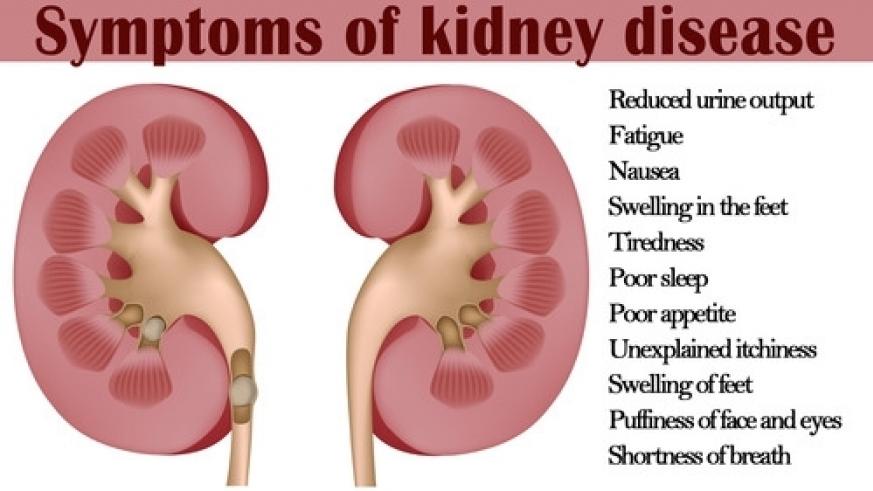20m Nigerians have kidney diseases – Nephrologists
The Nigerian Association of Nephrology (NAN) says 20 million Nigerians have kidney diseases, just it canvasses early detection of the diseases. The President of the association, Prof. Ifeoma Ulasi, disclosed on Monday at a news conference heralding the association’s 32nd Annual General Meeting (AGM) and Scientific Conference, in Ibadan. According to her, the theme of […]

kidney disease
The Nigerian Association of Nephrology (NAN) says 20 million Nigerians have kidney diseases, just it canvasses early detection of the diseases.
The President of the association, Prof. Ifeoma Ulasi, disclosed on Monday at a news conference heralding the association’s 32nd Annual General Meeting (AGM) and Scientific Conference, in Ibadan.
According to her, the theme of the AGM, ‘Kidney and Demographics,’ is to sensitise the public on primary prevention, owing to the high cost of treating the disease.
She noted that there were multiple factors causing kidney diseases, apart from genetics, adding that the nation’s health insurance needed to be reviewed to cater for people with the disease.
“The prevalence of kidney disease is about eight to 12 percent of the Nigerian population; it could be more, but as you may well know, many of our people don’t report to the hospital on time.
“They would have tried one or two alternative practices like native doctors or turned to spiritual houses to seek attention; we don’t get to see them early, but we believe it is about eight to 12 percent.
“So, if you work it out, 10 percent will be about 20 million Nigerians having kidney diseases.
“There are so many practices apart from us being genetically predisposed to kidney diseases.
“There are some practices that are not very good for our kidney health; oftentimes, some women use some medicated soaps that contain mercury; this is not good for the kidney,” Ulasi said.
According to her, many people also take herbal medications, which are not quantified, while the concentration is unknown.
Ulasi, however, noted that early detection as well as government support in terms of policy for renal care would help reduce its prevalence.
She said that the economy of taking care of patients with the disease fell on the family, which, she added, was in favour of men than women.
Ulasi called for the review of the National Health Insurance Scheme (NHIS) to cover care of kidney diseases.
She said that other ailments, such as hypertension and diabetes as well as some drugs for arthritis for the elderly, if not prescribed, could cause kidney diseases.
The association president said though kidney transplants were done in Nigeria, she, however, stressed the need for proper legislation to take care of medication and other paraphernalia for transplant.
“The World Health Organisation is already looking into the issue of commercialisation of organs for transplant because the practice globally is that you don’t pay for kidney; it is given out of love.
“We need government to support us to improve on what we are doing with our renal registry for us to have a bank of data that will make statistics easy,’’ Ulasi said.
Also, Dr Adanze Asinobi, a paediatric nephrologist, said that women should be well-nourished so as to give birth to healthy babies.
According to her, low birth weight contributes to prevalence of kidney diseases in children, hence the need for women to be wary of using bleaching cream and soap.
“If they have low birth weight or they are premature, their organs won’t develop well.
“Their kidney starts up having smaller numbers because there is a range for a functional kidney unit.
“If units are small from the beginning, then such a child is at risk of developing kidney disease more than the healthy individuals.
Therefore, hypertension may have its origin in childhood,” Asinobi said. (NAN)
